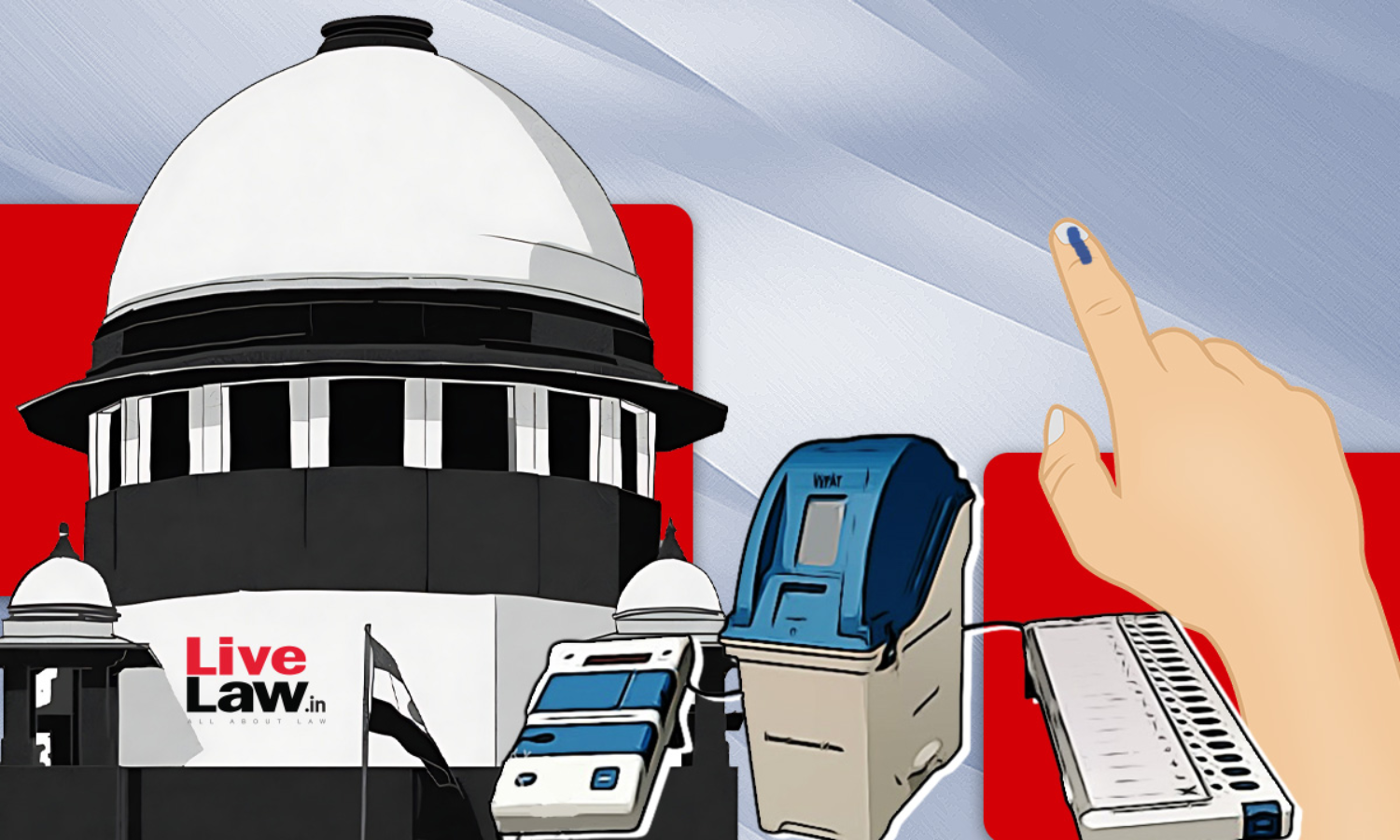 |
|
The recent Haryana Assembly elections have sparked a legal challenge in the Supreme Court of India. Former Haryana Cabinet Minister and five-time MLA, Karan Singh Dalal, along with Lakhan Kumar Singla, a candidate in the elections, has filed a petition demanding the verification and checking of Electronic Voting Machines (EVMs) used in the polls. Their petition hinges on a previous Supreme Court judgment in the case of Association for Democratic Reforms v. Union of India & Anr. This judgment mandates the verification of the burnt memory/microcontroller of a certain percentage of EVMs after elections, specifically for those candidates who placed second or third. The petitioners argue that the Election Commission of India (ECI) has failed to establish a clear policy or procedure to implement this judgment, leaving a significant gap in ensuring the integrity of the election process.
The core of the petitioners' argument lies in the perceived discrepancy between the existing standard operating procedure (SOP) issued by the ECI and the Supreme Court's ruling. While the ECI's SOP outlines a basic diagnostic test and a mock poll, it omits the crucial step of verifying the burnt memory/microcontroller of the EVMs by the manufacturers (BEL/ECIL). The petitioners contend that the ECI's SOP focuses primarily on counting VVPAT slips generated during the mock poll, effectively sidestepping the critical examination of the EVM's internal memory for any signs of tampering or modification. This omission, they argue, demonstrates a reluctance on the part of the ECI to subject the EVMs to thorough scrutiny, potentially undermining the fairness and transparency of the election results. The absence of a robust verification process, they claim, leaves open the possibility of undetected manipulation.
The petitioners' plea is not aimed at overturning the election results themselves. They have separately filed election petitions in the Punjab and Haryana High Court to challenge the results. This Supreme Court petition focuses specifically on the lack of a proper EVM verification process and seeks to compel the ECI to comply with the earlier Supreme Court judgment. They request the court to order the ECI to conduct the necessary verification of the burnt memory/microcontroller of the EVMs within an eight-week timeframe. The petition underscores the importance of transparency and accountability in the electoral system, arguing that without a rigorous verification process, public confidence in the integrity of elections could be significantly eroded. The case highlights the ongoing debate surrounding the security and reliability of EVMs in India, a subject of intense scrutiny and public discussion in the wake of numerous elections.
The legal battle initiated by Dalal and Singla raises critical questions about the ECI's commitment to implementing court orders designed to safeguard the integrity of elections. The petitioners' assertion that the ECI's SOP falls short of fulfilling the Supreme Court's directives underscores the need for clear, comprehensive guidelines for EVM verification. The outcome of this case will likely have significant implications for future elections, potentially setting a precedent for how EVM verification procedures are implemented and enforced. The Supreme Court's decision will not only determine the course of action in this specific case but also influence the overall discourse surrounding electoral transparency and the use of EVMs in India's democratic process. The public's perception of the fairness and accuracy of election results hinges heavily on the confidence in the mechanisms employed to ensure their integrity. The petitioners' action represents a crucial attempt to address this issue directly.
The involvement of a former Cabinet Minister and a candidate who secured a substantial number of votes adds weight to the petition. It suggests that concerns regarding EVM security are not confined to fringe elements but are shared by prominent figures within the political landscape. The petition's success or failure will have profound consequences, influencing not only the handling of future election disputes but also shaping the debate surrounding electoral reforms and the ongoing quest for greater transparency and accountability in India's electoral process. The high-profile nature of the petitioners and the seriousness of their concerns elevate the significance of this case beyond a simple procedural dispute, making it a pivotal moment in the evolution of India's election management and the ongoing dialogue regarding the reliability of EVMs.
Source: Ex-Haryana Minister Moves Supreme Court For Verification And Checking Of EVMs Used In Haryana Polls
